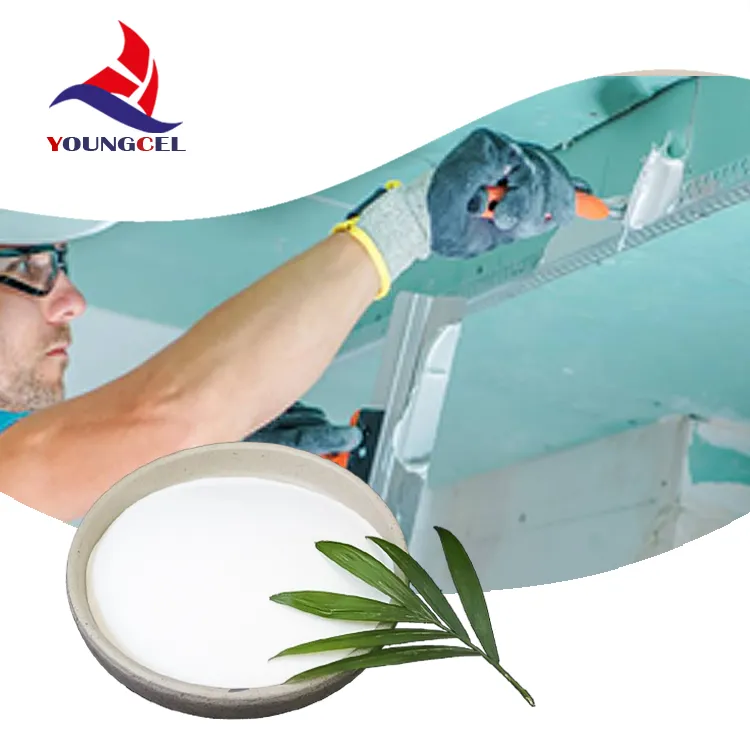The Role of HPMC in Tile Adhesives A Focus on the Chinese Market
Tile adhesive is an essential component in the construction and renovation industries, providing the necessary bonding between tiles and substrates. As the demand for high-quality construction materials continues to rise, so does the need for effective and reliable adhesive solutions. One such solution that has gained significant traction in recent years is Hydroxypropyl Methylcellulose (HPMC). This article will delve into the importance of HPMC in tile adhesives, with a specific focus on the Chinese market.
Understanding HPMC
Hydroxypropyl Methylcellulose (HPMC) is a cellulose ether that is widely utilized as a thickening agent, binder, and film-forming agent in various applications, including tile adhesives. Its unique properties, such as water retention, excellent adhesion, and ease of application, make it an ideal choice in the formulation of tile adhesives. It is particularly valued for its ability to improve workability and extend the open time of the adhesive, allowing for greater flexibility during installation.
Benefits of HPMC in Tile Adhesives
1. Water Retention One of the key advantages of HPMC is its water retention capability. This property ensures that the adhesive remains workable for an extended period, facilitating tile positioning without premature setting. This is particularly important in the fast-paced construction environment, where efficient working time can significantly influence project timelines.
2. Adjustable Viscosity HPMC allows for easy modification of the viscosity of the adhesive mixture. This adjustability enables manufacturers to tailor the adhesive's properties to suit different substrates and tile types, ensuring optimal bonding performance.
3. Thixotropic Properties HPMC exhibits thixotropic properties, which means that it can change viscosity under stress. When the adhesive is applied, it remains thick enough to prevent slipping of the tiles, while still being easy to spread. This unique characteristic enhances the overall effectiveness of the adhesive, particularly in vertical applications where tile sliding might be a concern.
china hpmc for tile adhesive

4. Environmental Stability Given China's diverse climate conditions, the durability of tile adhesives is crucial. HPMC contributes to the stability of the adhesive in extreme temperatures and humidity levels, ensuring that the bond remains intact over time, regardless of environmental fluctuations.
5. Enhanced Adhesion The chemical structure of HPMC promotes strong adhesion between tiles and various substrates, including concrete, cement, and plasterboard. This characteristic is vital in ensuring that tiles stay fixed and do not delaminate, thus enhancing the longevity and aesthetic appeal of tiled surfaces.
The Chinese Market for Tile Adhesives
China is a major player in the global construction industry, with rapid urbanization and infrastructure development driving demand for innovative construction materials. The growing popularity of ceramic tiles for both residential and commercial spaces has led to a corresponding need for high-quality tile adhesives.
Chinese manufacturers have increasingly turned to HPMC as a crucial ingredient in their tile adhesive formulations. As a locally sourced material, HPMC contributes to reduced production costs while enhancing product performance. Furthermore, the rise of eco-friendly construction practices has spurred interest in sustainable and non-toxic materials, making HPMC an appealing option for manufacturers seeking to meet these evolving consumer preferences.
Additionally, the consistent push towards higher construction standards and regulations in China has placed further emphasis on the need for reliable and effective adhesive solutions. Consequently, manufacturers have invested in research and development to innovate and refine HPMC-based adhesives, ensuring they meet industry standards and satisfy end-user needs.
Conclusion
In summary, Hydroxypropyl Methylcellulose (HPMC) plays a vital role in the formulation of tile adhesives, especially within the burgeoning Chinese market. Its unique properties, such as excellent water retention, adjustable viscosity, and strong adhesion, make it an ideal choice for manufacturers aiming to produce high-quality adhesive products. As the construction industry continues to evolve, the demand for reliable and effective tile adhesives will likely grow, solidifying HPMC's position as a key ingredient in the future of construction materials. The collaboration between local suppliers and manufacturers focusing on HPMC will not only enhance product performance but also support the green building movement within China.
-
Rdp that The Revolutionary Polymer Powder Transforming Modern Construction MaterialsNewsAug.11,2025
-
Hpmc Powder that Versatile Additive for Detergents and Personal CareNewsAug.11,2025
-
Hpmc Hydroxypropyl Methylcellulose that Essential Building Material Additive from Shijiazhuang Gaocheng YongfengNewsAug.11,2025
-
Hydroxypropyl Methyl Cellulos Hpmc that Essential for Construction ApplicationsNewsAug.11,2025
-
Mhec Powder that Revolutionizing Construction Chemistry with Cellulose Ether SolutionsNewsAug.11,2025
-
Industri Hpmc that The Global Backbone of Advanced ConstructionNewsAug.11,2025




